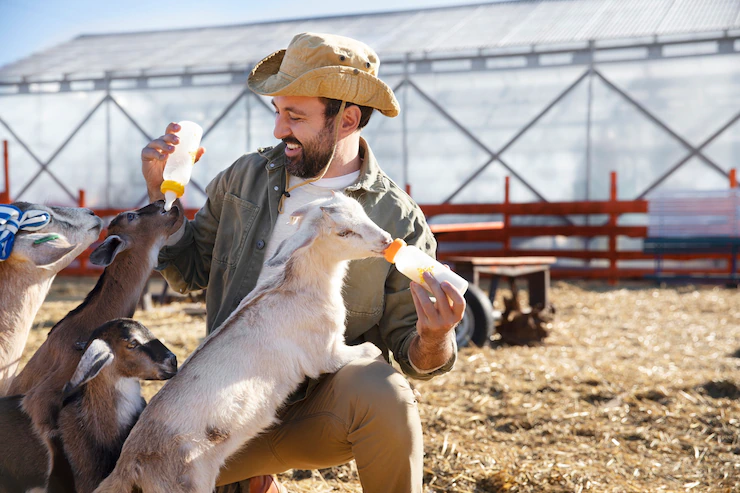- Role and Responsibilities: Livestock farmers are responsible for the care, management, and overall well-being of livestock animals. This includes feeding, watering, and providing appropriate housing for the animals, as well as monitoring their health and administering necessary medications or treatments.
- Animal Husbandry: Livestock farmers need a strong understanding of animal husbandry practices, which involves breeding, genetics, reproduction, and animal welfare. They must ensure proper breeding methods, manage reproduction cycles, and maintain the health of the animals.
- Knowledge of Livestock: Livestock farmers should have in-depth knowledge of the specific species they are working with, such as cattle, pigs, sheep, or poultry. This includes understanding their behavior, nutritional requirements, and common health issues.
- Farm Management: Livestock farmers are often involved in the overall management of the farm. They need to plan and implement strategies for efficient production, maintain farm infrastructure, manage budgets and expenses, and oversee the day-to-day operations.
- Environmental Considerations: Livestock farmers should be aware of environmental concerns related to their operations. This includes managing waste and manure disposal to prevent pollution, implementing sustainable farming practices, and complying with relevant regulations.
- Health and Safety: Livestock farming can involve physical labor and potential hazards. Farmers need to prioritize health and safety protocols to protect themselves and their workers. This includes using appropriate protective equipment, implementing proper animal handling techniques, and ensuring a safe working environment.
- Business Skills: Livestock farmers need strong business skills to succeed. They must have financial management skills to track expenses, analyze profitability, and make informed business decisions. Marketing skills are also important to sell livestock products and negotiate with buyers.
- Lifelong Learning: Livestock farming is an ever-evolving field, and staying updated on industry trends, new technologies, and best practices is crucial. Livestock farmers should be open to continuous learning through workshops, seminars, and networking with other farmers.
- Physical Stamina: Livestock farming often involves physical labor, including lifting heavy objects, working in various weather conditions, and being on your feet for long hours. Good physical stamina and fitness are important to handle the demands of the job.
- Passion and Dedication: Livestock farming requires a genuine passion for working with animals and a high level of dedication. It can be challenging and demanding, but also rewarding. A strong work ethic and love for the animals are essential for success in this profession.
Join 'Farmers Mag' WhatsApp Channel
Get the latest Farming news and tips delivered straight to your WhatsApp
CLICK HERE TO JOIN






